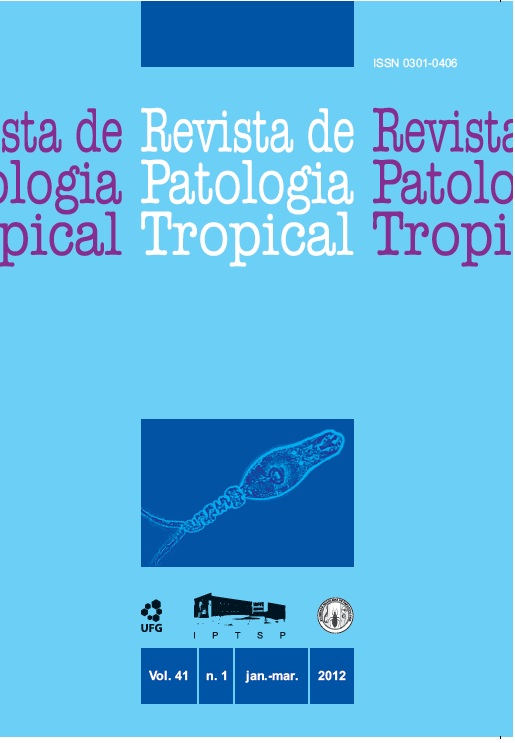Knowledge and practices about Chagas disease and its vectors of residents of the Federal District in Brazil
DOI:
https://doi.org/10.5216/rpt.v41i1.17749Keywords:
Chagas disease, Entomological surveillance, Community participation.Abstract
In the Federal District of Brazil (FD), Chagas disease vector surveillance is based on community participation, and this strategy depends on the knowledge of the population in relation to the vectors. The objective of this study was to analyze the knowledge and practices of residents of rural and urban areas on triatomine bugs and Chagas disease (CD). Data collection was conducted with 115 residents, using semi-structured interviews. Most interviewees recognized adult triatomines by the name “barbeiro”, however they did not know about feeding habits and reproduction of these insects, nor about how long these insects live. For most of the interviewees the triatomines come from the forest, and they are more frequent during the rainy season. Most respondents understood that the triatomines transmit CD. The main practice reported by residents in relation to dealing with triatomines in the house was killing the insects. Cleanliness of the environment and use of insecticides were the
main control measures reported. The heart was the main organ affected by the disease according to residents. Despite that the knowledge shown by the residents was considered satisfactory, educational measures are needed to improve entomological surveillance of CD in the FD.
Downloads
Downloads
How to Cite
Issue
Section
License
The manuscript submission must be accompanied by a letter signed by all authors stating the full name and email address, confirming that the material has not been published or is under consideration for publication elsewhere, and agreeing to transfer copyright in all media and formats for Journal of Tropical Pathology. The authors will not be paid for published articles. They are solely responsible for the content of those articles, even if the Editor holds the right to adjust them to the norms of the journal.
The reviewers will not be paid for the peer review process.

